“Profit margins are probably the most mean-reverting series in finance. And if profit margins do not mean-revert, then something has gone badly wrong with capitalism.” – Jeremy Grantham
While there are certainly many complaints that “capitalism” is broken, such is not the case. Yes, there are problems with economic inequalities, the majority of which can be directly traced to monetary and fiscal policies and a rise in “corporatism.” However, that is a discussion for another article.
In the economy today, capitalism is alive and well. The reason we know this is due to both the surge in inflation and corporate profitability since 2020. If “capitalism” was broken, as the economy was flooded with $5 trillion in fiscal stimulus, inflation would not have resulted. To wit:
“The following economic illustration shows such taught in every ‘Econ 101’ class. Unsurprisingly, inflation is the consequence if supply is restricted and demand increases by providing ‘stimulus’ checks.”
With the economy shut down and an inorganic surge in demand due to “free money,” the selling prices of a restricted supply of goods rose. The basic economic function of supply and demand proves capitalism is functioning properly. Furthermore, as shown, corporate profits surged with labor costs greatly reduced due to the shutdown and higher prices due to artificially stimulated demand.
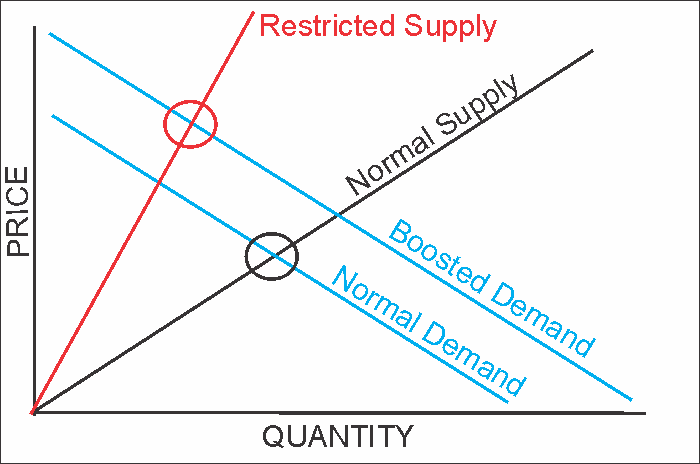
“Notably, this has nothing to do with giant corporations taking advantage of consumers. It is just the economic consequence of ‘too much money chasing too few goods.”’ – RIA
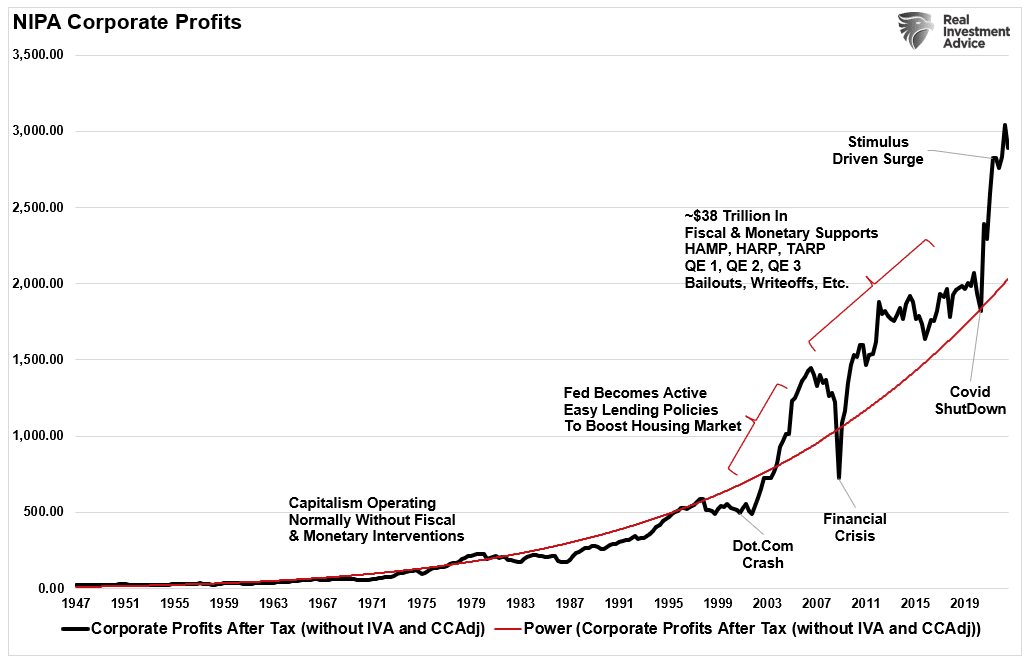
Lastly, if “capitalism was broken,” as many suggest, stock market prices would not have chased higher corporate profits. In a capitalistic market environment, investors should place a higher valuation on companies with increased profits. Such is precisely what we saw in 2020 and 2021 as investors began to overpay for current profits. As is always the case, “greed” is a byproduct of capitalism.
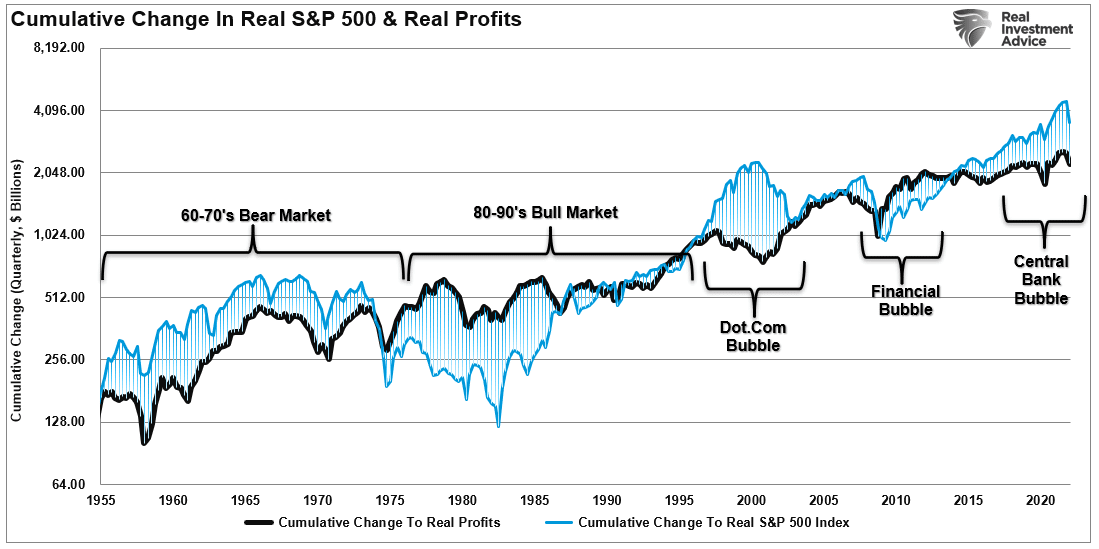
However, corporate profits must also fall if capitalism has not become broken.
What Are You Going to Do for Me Now
Let’s revisit how we got that massive surge in corporate profits.
- Shut down the economy leading to a massive surge in unemployment.
- Start sending $5 trillion in monetary stimulus directly to households.
- Have the Federal Reserve cut interest rates to zero.
- Begin the most aggressive Quantitative Easing program in history.
- Put moratoriums on various debt obligations giving households more discretionary savings to spend.
Not surprisingly, with labor costs sharply reduced and households flush with cash to spend and nothing else to do, combined with an inventory shortfall to meet demand, the result was a sharp increase in profitability. The data from the NFIB small business survey confirms that as labor costs continue to rise, corporate profits will fall.
“This points to economy-wide profit margins continuing to fall – potentially quite sharply – through the year.” – Simon White from Bloomberg
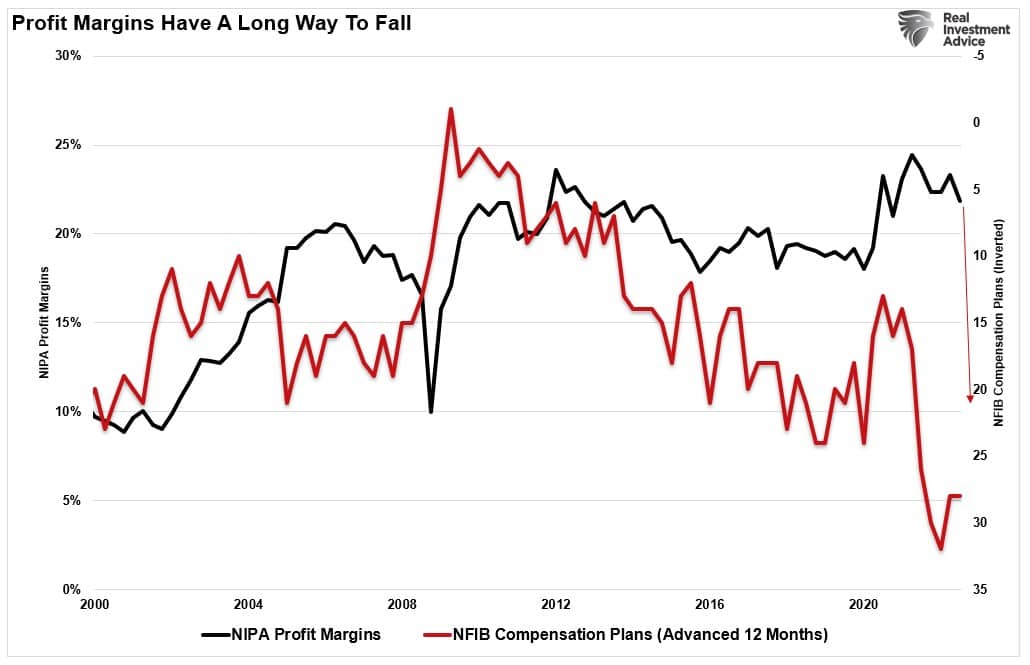
So, suppose the combination of a shuttered economy, no supply, and massive rounds of fiscal stimulus got us here. What is going to be the catalyst to support record profits in the future?
Over the next few years, the environment looks markedly different than in the past.
- The economy is returning to a slow growth environment with a risk of recession.
- Inflation is falling, meaning less pricing power for corporations.
- No artificial stimulus to support demand.
- Over the last two years, the pull forward of consumption will now drag on future demand.
- Interest rates are substantially higher, impacting consumption.
- Consumers have sharply reduced savings and higher debt.
- Previous inventory droughts are now surpluses.
If you agree with that premise, you must agree that “capitalism HAS NOT become broken.” Therefore, corporate profits, and by extension earnings, must revert to accommodate slower economic growth. The current near-record deviation of corporate earnings from the long-term exponential growth trend remains problematic for bullish investors currently.
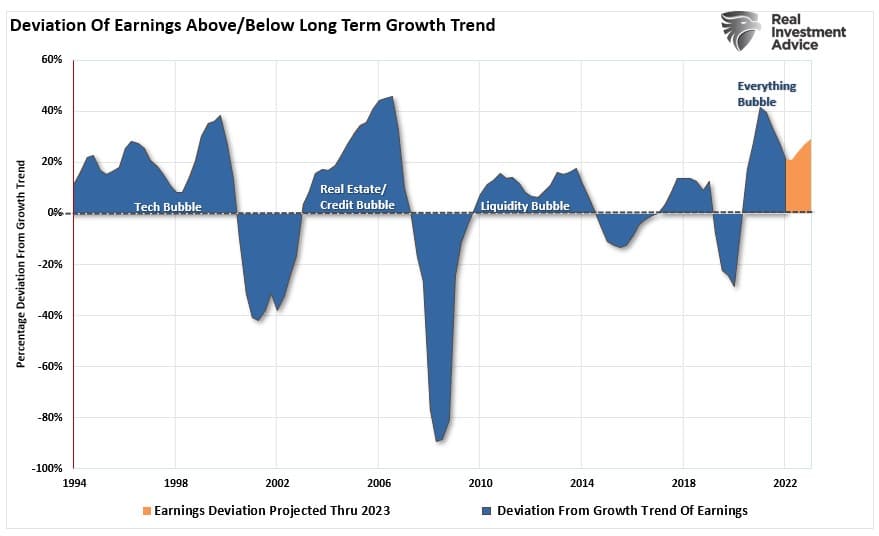
Capitalism Remains Detached
It is certainly understandable why people think capitalism has become broken. They feel unfairly treated as the labor providers to the capital providers. The chart below of profits to wages makes the argument.
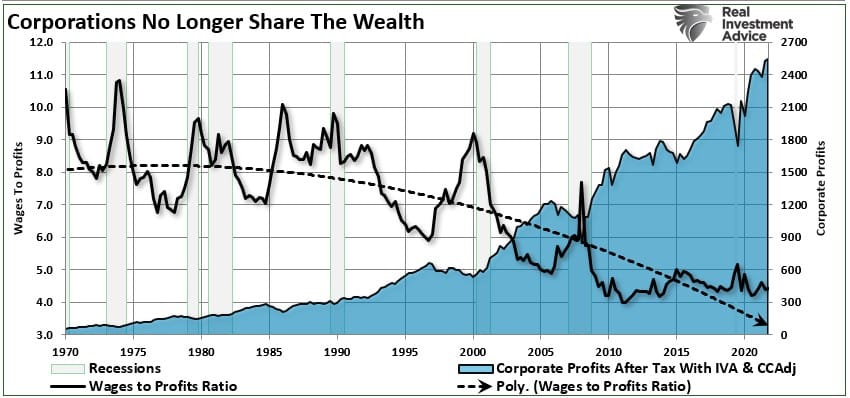
However, the very definition of capitalism is that chart:
“Capitalism is an economic system in which private individuals or businesses own capital goods. At the same time, business owners (capitalists) employ workers (labor) who only receive wages; labor does not own the means of production but only uses them on behalf of the owners of capital.” – Investopedia
In other words, if you are feeling slighted by the current economy, then you have three choices:
- Be a laborer, or
- Become a provider of the means of production, or
- Invest in public companies through the stock market
The problem is that corporate profitability and the market remain detached from the underlying economy due to the massive interventions over the last decade. Such makes forward returns on providing the means of production and market investments more problematic.
Historically, such deviations don’t work out well for overly “bullish” investors. The correlation is more evident when looking at the market versus the ratio of corporate profits to GDP. Why profits? Because for IRS tax purposes, corporations report “profits,” which are much less subject to manipulation than “earnings.”
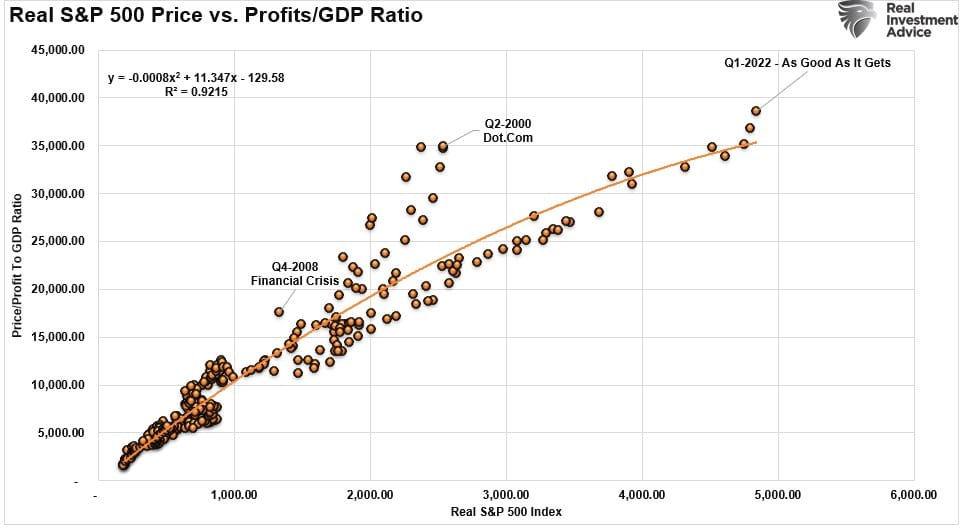
With correlations at 90%, the relationship between economic growth, earnings, and corporate profits should be evident. Hence, neither should the eventual reversion in both series. Currently, the S&P 500 index is trading well above its historical trend in earnings. As corporate profits decline, the current earnings estimates will also decrease.
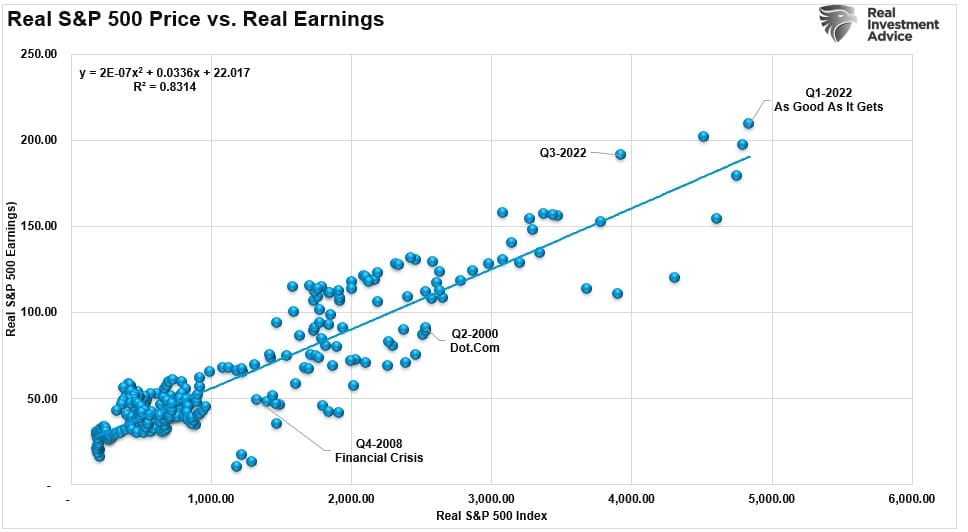
No. Capitalism has not become broken. However, the detachment of the stock market from underlying profitability guarantees poor future outcomes for investors. But, as has always been the case, Wall Street is always late in catching up with economic realities.
Such is particularly the case of surging stocks against a weakening economy, reduced global liquidity, and rising inflation. While investors cling to the “hope” the Fed has everything under control, there is more than a reasonable chance they don’t.
